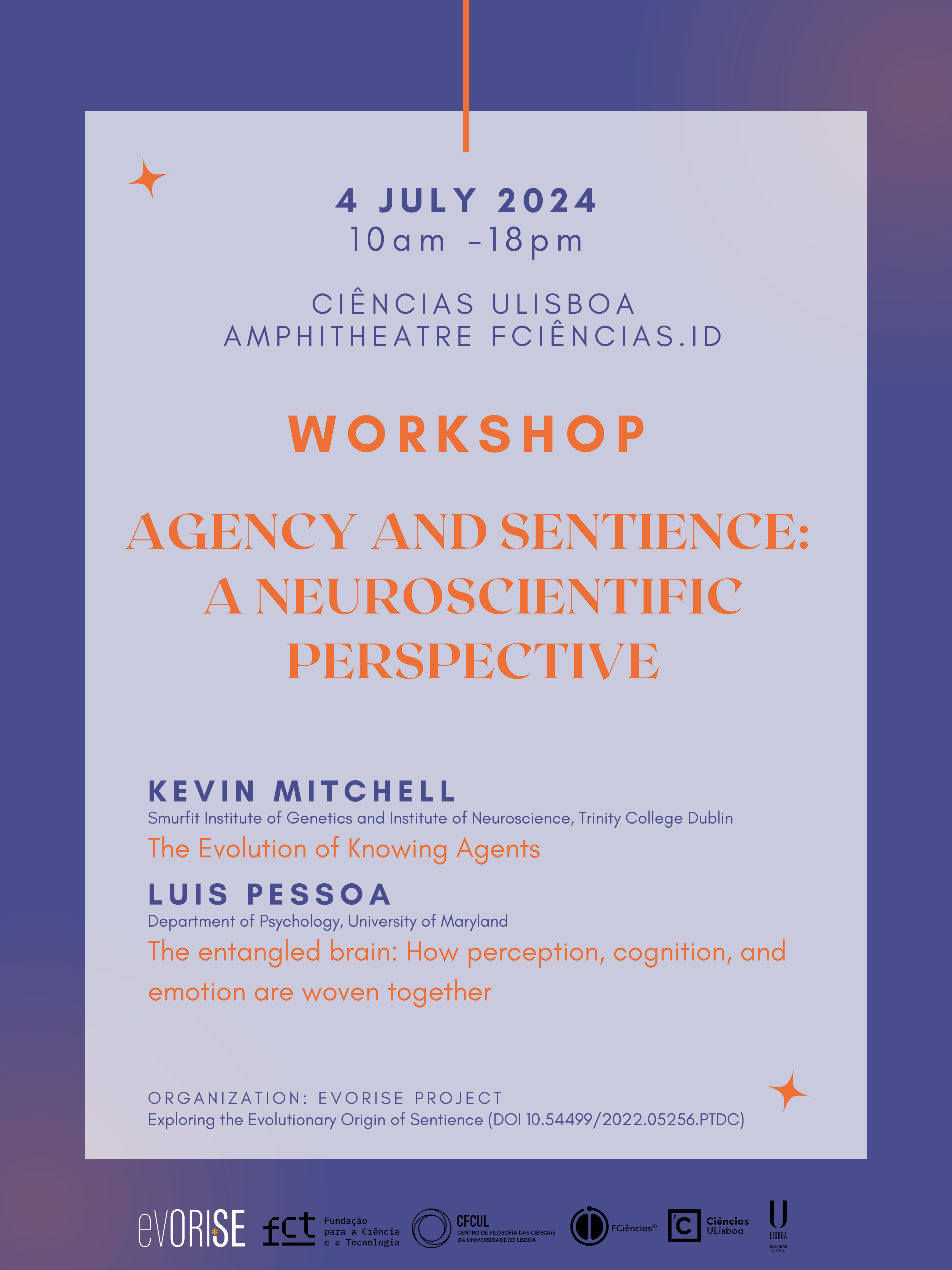
Programme
10:00 – 10:30 Introduction (Davide Vecchi, CFCUL/RG2)
10:30 – 12:30 The Evolution of Knowing Agents
(Kevin Mitchell) + Discussion
12:30 – 14:30 Lunch break
14:30 – 16:30 The entangled brain: How perception, cognition, and emotion are woven together
(Luís Pessoa) + Discussion
17:00 – 17:30 Coffee break
17:00 – 18:00 General discussion
KEVIN MITCHELL (Smurfit Institute of Genetics and Institute of Neuroscience, Trinity College Dublin)
The Evolution of Knowing Agents
To persist in a dynamic world, organisms must be sensitive to external conditions and able to act on that information. Acting adaptively requires more than mere sentience, however – it requires knowledge. This knowledge – of the statistical regularities and causal structures and relations of the world and the self in that world – can be acquired through evolution and embodied in pragmatic, preconfigured control policies. In animals capable of learning, it is also acquired across individual lifetimes, and embodied in semantic networks encoding concepts and relations, and a causally predictive model of the world. This supports flexible and adaptive behavior across novel scenarios – ones that evolution could not anticipate in detail. Organisms thus accrete causal power by accumulating causal knowledge and effective understanding of the world. In humans, this capacity exploded with the emergence of language and culture, becoming collective and progressive across generations. It is likely to be further transformed through the applications of artificial intelligence.
LUÍS PESSOA (Department of Psychology, University of Maryland)
The entangled brain: How perception, cognition, and emotion are woven together
Humans are emotional beings, that much is clear, and emotion seems to interfere with our ability to behave more “rationally”. But the more we look at the brain of humans and nonhuman animals alike, the more it seems that the brain is not organized in terms of clear-cut, separate systems that support “emotion”, “cognition”, “motivation”, and so on. In this talk, I will present evidence that these mental capacities are supported by dynamic and distributed processes that span the entire brain. This organization supports a degree of “computational flexibility” that enables animals to cope successfully with complex and ever-changing environments. An implication of this framework is that brain processes do not respect the boundaries of standard mental terms: there are no separate brain territories for perception, cognition, action, emotion, or motivation.
Zoom
https://videoconf-colibri.zoom.us/j/94713189369?pwd=1aZOceWlbQ9A0NjuFYbnNoVamOpk1Y.1
Password: 021684
Workshop do projecto EVORISE – Exploring the evolutionary origin of sentience (I.P. Davide Vecchi, CFCUL/GI3)
Ref: DOI 10.54499/2022.05256.PTDC ; 2022.05256.PTDC